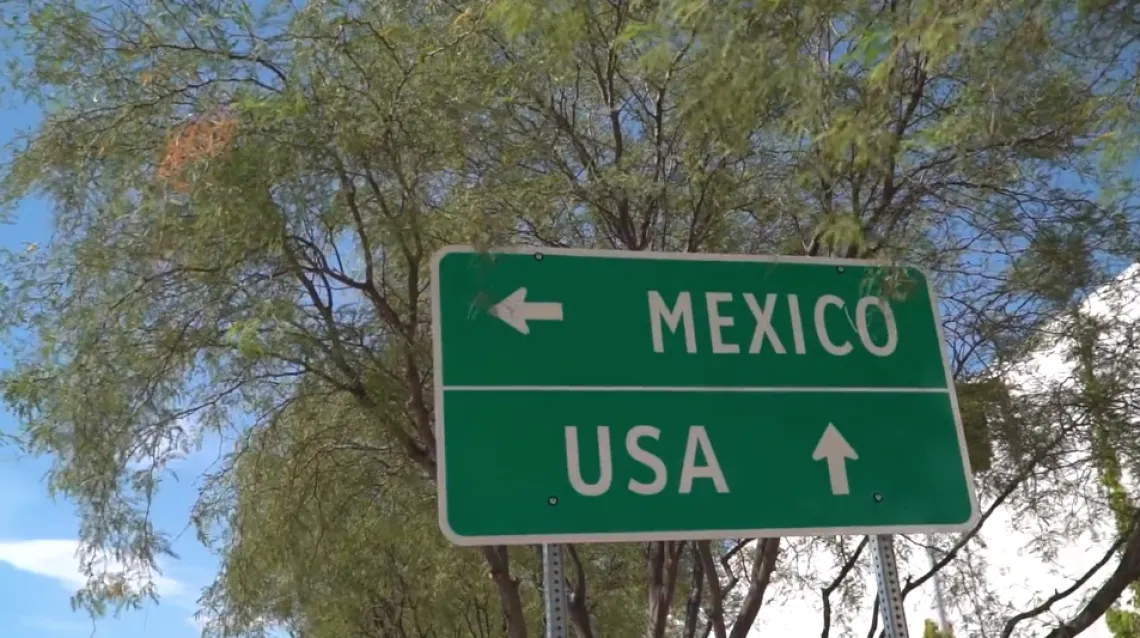NNI Partners with UNC and UA Global to Facilitate Borderlands Experience

In 2018 the University of North Carolina (UNC) created the Cumpston Fellows First-Generation Student Initiative to support first-generation college students explore their identity and concepts of borders and borderlands through a study abroad experience during the summer. The Fellows program provides a learning community that builds on personal border experiences while exploring new narratives of physical and figurative borders and borderlands by visiting Arizona and Sonora. Now in its second year, UNC and the University of Arizona (UA) Global have partnered with Native Nations Institute (NNI) to bring an essential Indigenous voice and perspective to the Cumpston Fellows initiative.
Nadia Alverez Mexia, Director of Latin American Partnership Initiatives at UA, who coordinated the partnership with UNC shared, “It was inspiring to observe the self-reflection process these students experienced through the program; it affirmed the need to continue developing and offering programs that not only educate students and ourselves – professionals in education – but also offer safe environments to have deep dialogues about borderlands, their relevant connections, cultures, traditions, and common environment. This is how we break down misconceptions and stereotypes about this region.”
WATCH VIDEO about the 2018 Fellows |
NNI introduced Indigenous governance concepts and the challenges of physical and political borders in the United States to the nine Fellows through a visit to the Tohono O’odham Nation. Former Vice-Chair Verlon Jose of the Nation and Vice-Chair Kendall Jose, Chuk Ku Kuk District, one of 12 political districts, hosted the Fellows to discuss US/Mexico/Tohono O’odham border history and experiences from a tribal perspective. During his presentation, Former Vice-Chair Jose explained to the fellows that the O’odham language does not have a word for border and emphasized that “…the border crossed the [Tohono O’odham] Nation, not the other way around.” NNI staff presented information describing how Native nation governments are addressing border issues within their jurisdictions. NNI’s Tribal Services Coordinator Davida Delmar (Navajo Nation/Diné) explains the importance of including the O’odham voice to this program, “As one of the tribes at the forefront of border issues, their perspective on this national debate is largely based on protecting their land, people and cultural traditions. It’s not swayed by popular or political interests.”


